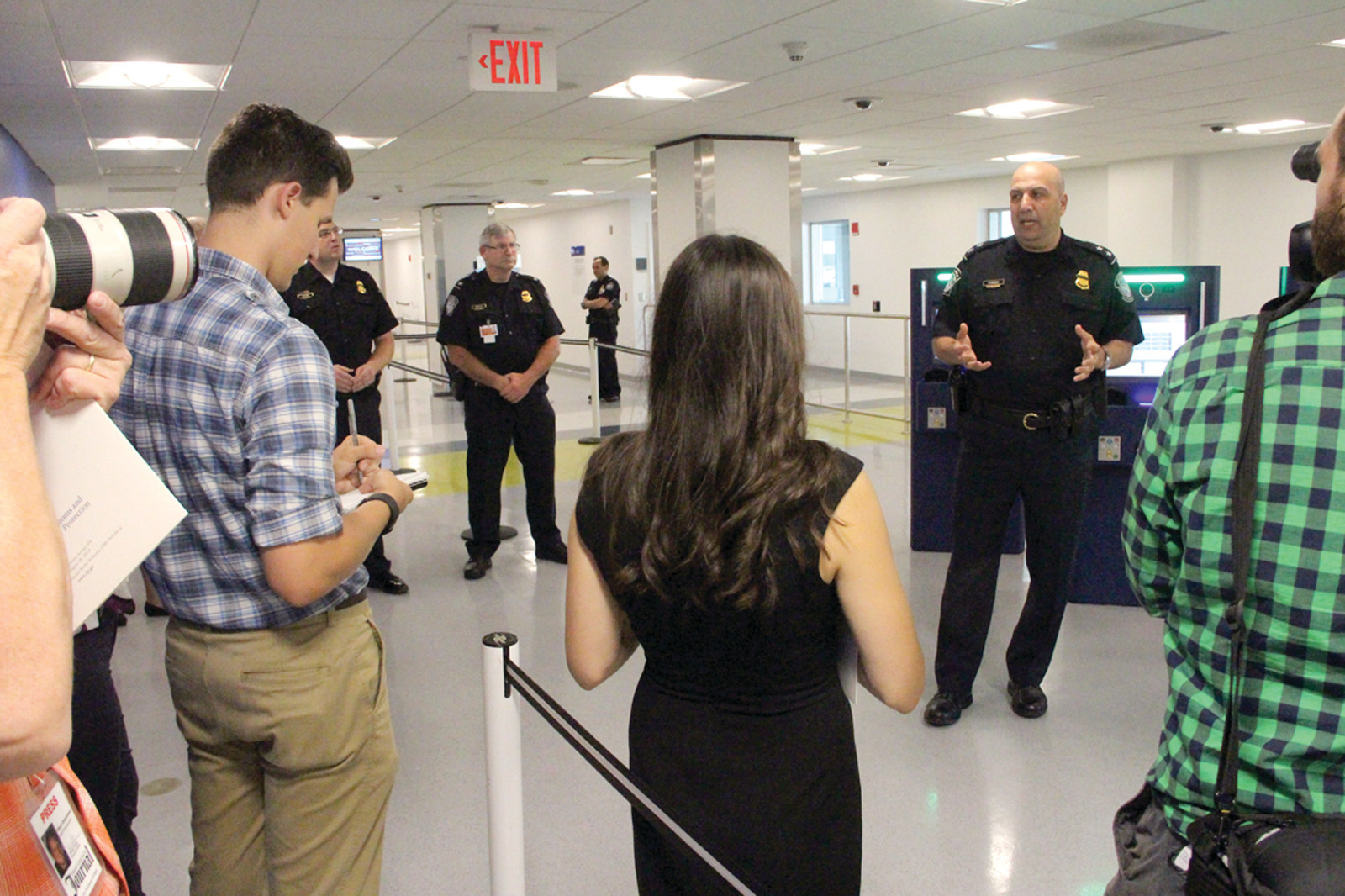Customs ready for foreign visitors
With increased international flights arriving at T.F. Green, the United States Customs and Border Protection (CBP) has stepped up its efforts to ensure that no dangerous person or material passes into the state and, by extension, the country.
“Our job is quite simple,” said William Ferrara, Director of Field Operations for the Boston Field Office of CBP during a media tour at the expanded international customs section at T.F. Green. “We protect the nation’s borders. Basically, we allow good people and good things in and try to keep bad people and bad things out.”
Ferrara reported that the security measures utilized by CBP had already succeeded in preventing “about 10” individuals from gaining access into the country through T.F. Green since July 1. They were sent back to their country of origin on return flights. The CBP processes 2,100 international travelers each week at Green, a number that is projected to grow this fall with additional flights.
Next to Boston’s Logan Airport, Green is the largest CBP airport operation in New England. According to RIAC spokeswoman Patti Goldstein, improvements to the facility at Green is projected to cost $8.8 million by the time they are completed.
During the tour, Ferrara explained how the use of newer technology, such as the ATM-like automated passport control kiosks (APCs), has allowed CBP to keep up with a recent boon in international air travel. According to Ferrara, air travel has increased by a whopping 37 percent from 2009 to the present, amounting to about 32 million more people arriving in the U.S. annually.
The kiosks allow travelers to scan their passports and answer the series of questions that are normally asked by CBP officers upon their arrival, like what items they have to declare and the purpose of their trip. Ferrara said that these kiosks increase efficiency and security.
“This technology...saved the industry [in 2013],” he said.
In addition to retaining all of the regular security checks of the traditional method, the APCs save a considerable amount of time for travelers and CBP officers. According to Ferrara, having the kiosks handle the preliminary administrative duties that would normally be handled by an officer enables three travelers to be processed in the time it normally takes to process just one.
In response to a question raised about people lying using the kiosks, Ferrara said that officers still have the ability to gauge whether or not someone is being truthful and can actually pay more attention to the person in question because they aren’t as concerned with scanning a passport and clicking through a process now handled by the kiosks.
“It’s great for us because our officers are trained to detect deception and elicit the responses that we need, and they do it in a quick manner,” Ferrara said. “We can have an officer be more productive and be more efficient. The security level is actually higher because they’re talking to the person and looking at them directly while engaging with them.”
“We can’t stop people from lying, just hope to catch them,” he added.
Ferrara talked about how the average international traveler spends about $4,500 during their trip, and that 33 of those passengers equates to one fulltime position for CBP.
“That’s going to help not only the national economy, but locally it will help our economy here,” he said.
The United States Customs and Border Protection is a federal agency encompassing three divisions (field operations, border patrol and air/marine operations) with nearly 60,000 employees, tasked with securing the more than 7,000 miles of terrain that make up the United States border.
On any given day, CBP processes more than one million passengers and pedestrians and $6.3 billion of imported goods, seizes 7,910 pounds of illicit drugs and $289,609 in illicit currency, arrests 22 wanted criminals and identifies 877 individuals with suspected national security concerns. Altogether they police 328 ports of entry.







